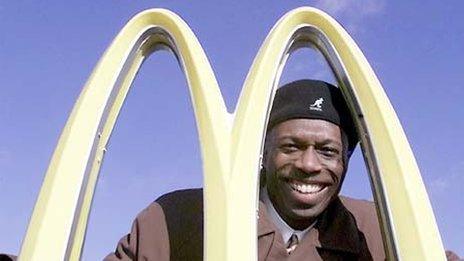McDonald's looks for 'gender parity' by 2030
- Published
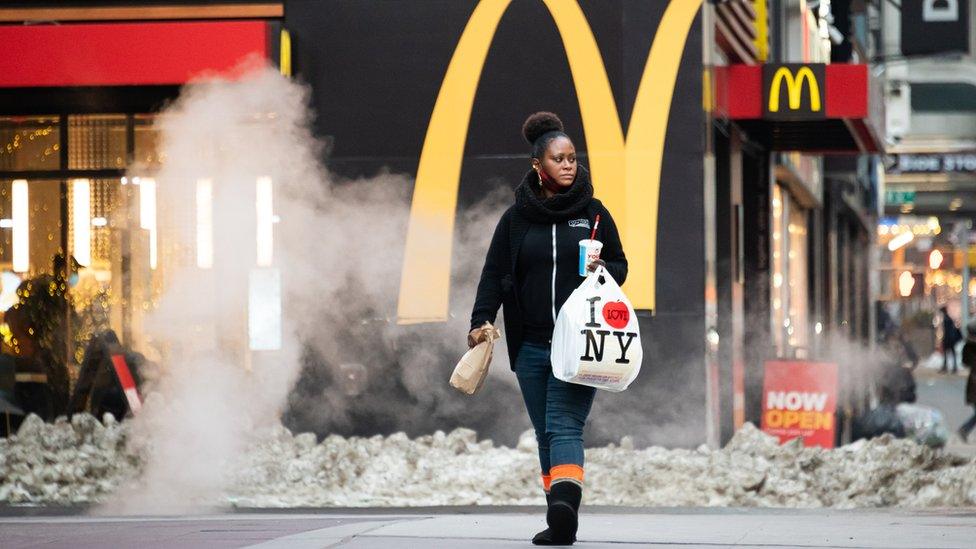
McDonald's has set a goal of having an equal number of men and women in leadership roles by 2030 as it looks to improve diversity at the company.
The fast-food chain also said it would work to boost minority representation in the firm's senior US ranks from 29% to 35% over the next four years.
Executive pay will be tied to meeting the targets.
The effort follows claims of racial discrimination from black franchisees and executives in the US.
Workers have also accused the firm of fostering "systemic sexual harassment" at its restaurants.
McDonald's has disputed the allegations. But in July, amid widespread Black Lives Matter protests in the US, the firm announced a new diversity, equity and inclusion initiative.
In November, the firm brought on a new person to lead implementation of the effort.
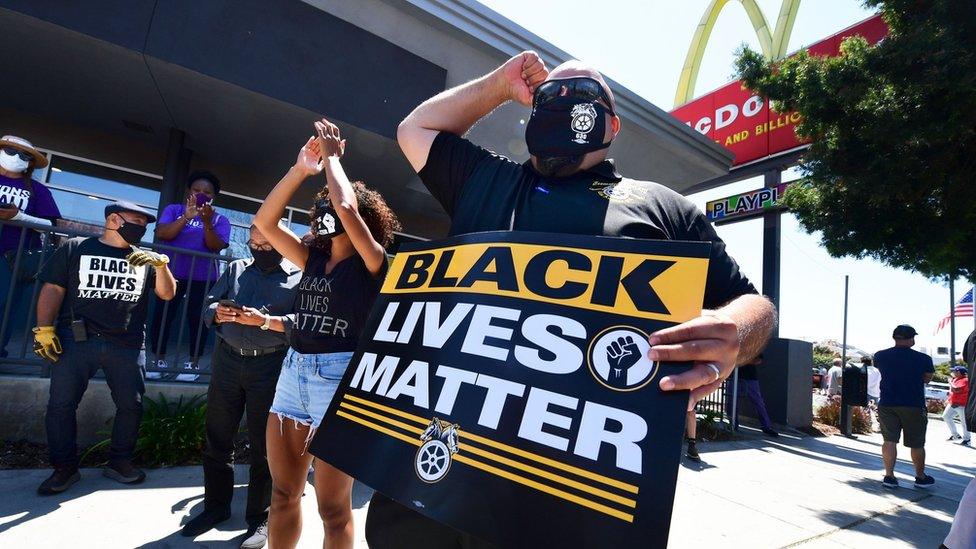
"We recognise these issues weigh heavily on our people and have heard - loud and clear - that diversity, equity and inclusion are priorities for our entire team, from our crews to our senior leaders," McDonald's chief executive Chris Kempczinski wrote in a letter to staff.
"We're serious about holding ourselves and our leaders accountable to these foundational commitments."
As part of its efforts, McDonald's released demographic data of its US workforce for the first time.
The 2018 figures show the firm had more black, Hispanic and Asian senior managers than the industry overall. Women and minorities also accounted for a larger share of service workers than the industry average.
However, the share of black and Hispanic first- and mid-level managers lagged.
The firm said it would determine executive bonuses based on a combination of sales and profit growth, with meeting diversity goals weighted at 15%.
Jamelia Fairley, a McDonald's worker at a corporate-owned store in the Orlando, Florida area, said the firm had long been "complacent" on these issues.
"While workers have rung the alarm, from filing complaints and lawsuits to going on strike, McDonald's has largely ignored its racial discrimination problem from the C-suite to the frontlines," said Ms Fairley, a leader in the Fight for $15 and a Union, an activist campaign that has pressured McDonald's over racial discrimination and sexual harassment, among other issues.
"This isn't a problem that can be solved by paying wealthy executives even more to hire a handful of new senior staff," she added.
"If McDonald's really wants to address racial and gender inequality, it needs to start by listening to the black and brown cooks and cashiers who have been speaking out about workplace discrimination and pay for years."
Related topics
- Published14 April 2020
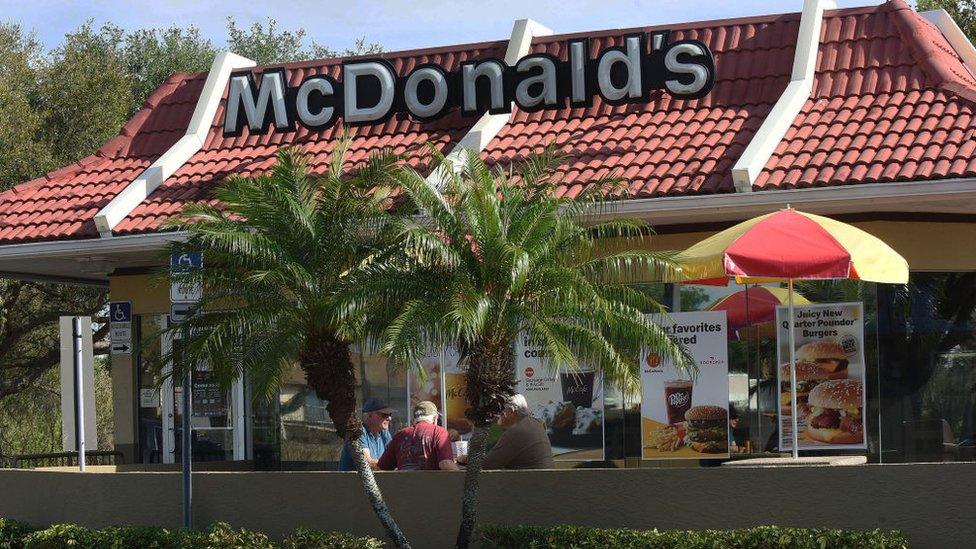
- Published8 January 2020
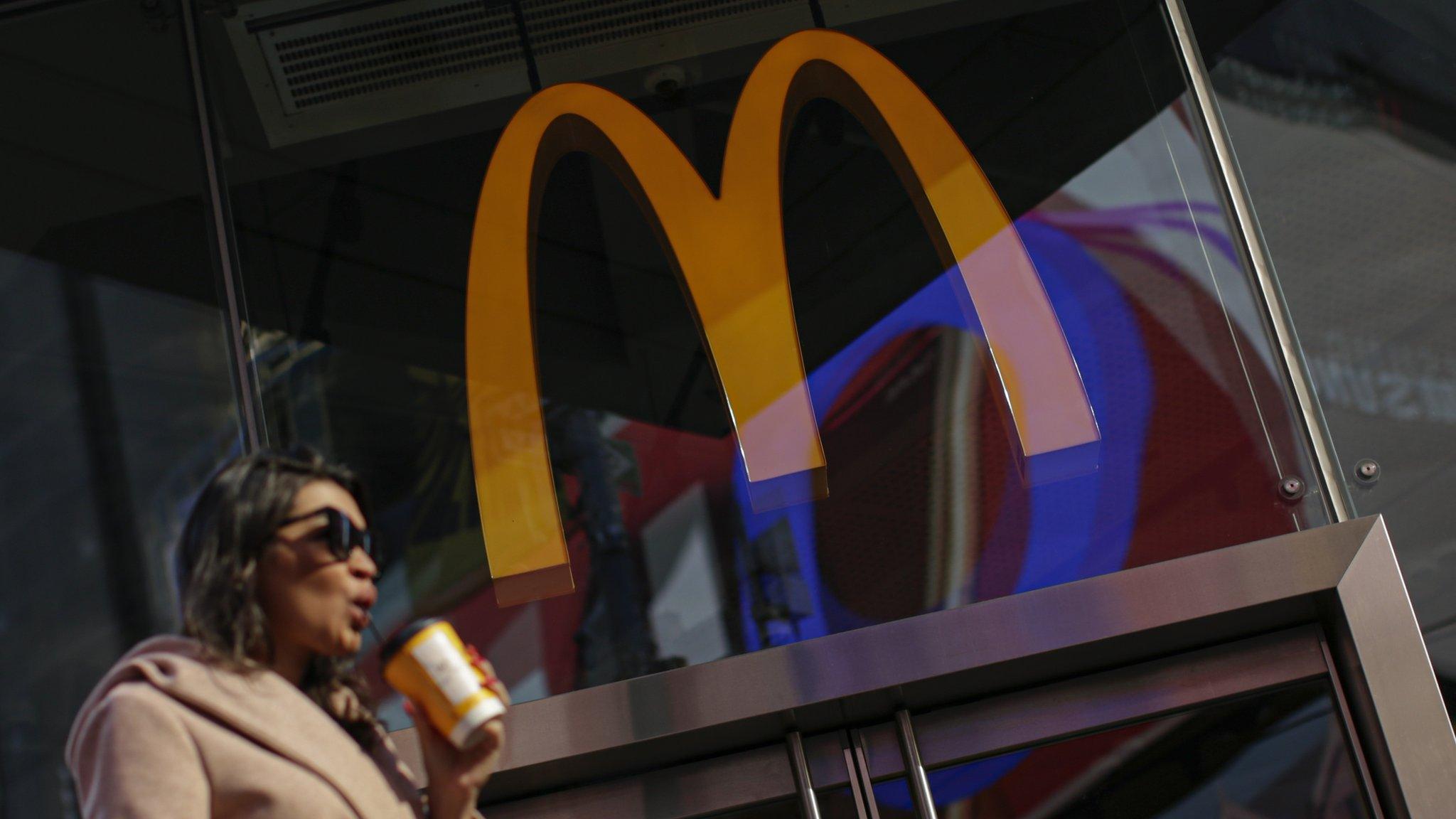
- Published16 February 2021
